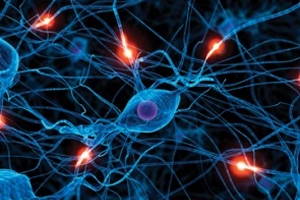Neurophysiology / Electroencephalogram (EEG)

Main Address
- Whittington Hospital
EEG Department
Clinic 3A
Level 3 Outpatients - 020 7288 5317
- whh-tr.neurophysiologyreferrals@nhs.net
COVID-19 update:
If possible, attend alone unless you require an essential carer escort. For example, if you have hearing impairment, a disability, or if you are a vulnerable adult. In such instances, you will be allowed to have one carer/named individual with you.
Wear a face covering when coming into the hospital setting.
If you receive a positive test for COVID-19 or if you develop any the following symptoms two days prior to your appointment, please contact the Trust using the number on this website and do not attend your appointment:
- High temperature
- New continuous cough
- Loss of/change in smell or taste
In the Clinical Neurophysiology department, we provide an array of tests that record electrical activity from your brain, nerves and muscles. These tests are usually done at the request of a doctor and will assist in the diagnosis and management of your condition.
Tests Performed
EEG (Electroencephalogram)
This is a test to record the electrical activity of the brain. Small discs attached to wires are placed on the scalp to record and monitor brain activity on a computer screen. The test is painless and there are no after-effects.
You may be referred for two different types of EEGs:
- Routine EEG – This looks at your brain activity whilst you are awake. The test will last around one hour.
- Sleep EEG – This looks at your brain activity whilst you are awake and in sleep. Your doctor might ask you to partially sleep deprive (sleep fewer hours than you normally would) or prescribe Melatonin to be administrated during the recording. The test will take around two hours.
Note: Melatonin is not a sedative.
NCS & EMG (Neve Conduction Studies & Electromyography)
These tests study the function of nerves and muscles. They might be performed jointly or separate, depending on your condition.
There are no after-effects although these tests may feel slightly uncomfortable. The appointment will last between 30 minutes to one hour.
- Nerve Conduction Studies (NCS) - a small electrical impulse will be applied to two or more nerves. This is painless but can produce a slight tingling sensation.
- Electromyography (EMG) – examination of the muscles whilst at rest and tensing up by using a very fine needle.
Evoked Potentials
These tests record the brain’s responses to particular stimuli. They are painless and there are no after-effects. They take about an hour, each. Your doctor may only refer you for one modality of Evoked Potentials, depending on your condition.
There are no after-effects with these tests.
There are no after-effects with these tests.
- Visual Evoked Potentials (VEP) – You will be sat in a comfortable chair and will be asked to look at a checkerboard pattern in a screen or, in instances, at a flashing light. Small discs attached to wires will be placed on the scalp to record small electrical responses produced by the optic nerves (nerves from the eyes)
- Somatosensory Evoked Potentials (SEP) – For this modality a small electrical pulse will be applied to two or more nerves. Small discs attached to wires will be placed on several areas (e.g. collarbone, neck, scalp) to record how the impulse travels throughout the nerves and spinal cord until it reaches the brain.
Appointments
020 7288 5317
Contact
Clinical Physiologists 020 7288 5379
Further Information
Contact:
Patient Pathway Coordinator
Mrs Elham Javadi
Tel: 020 7288 5317 (line open between 8am-4pm)
Neurophysiology Staff
Dr Adrian Fowle - Consultant Clinical Neurophysiologist
Patient Pathway Coordinator
Mrs Elham Javadi
Tel: 020 7288 5317 (line open between 8am-4pm)
Neurophysiology Staff
Dr Adrian Fowle - Consultant Clinical Neurophysiologist
Mr Fabio Abreu - Lead Clinical Physiologist (Neuro)
Ms Jasmine Wong – Highly Specialised Clinical Physiologist (Neuro)
Mrs Amanda Luong - Highly Specialised Clinical Physiologist (Neuro)
Monday to Friday
8.30am to 5pm
8.30am to 5pm
Neurophysiology referral forms within the Trust are accepted via ICE.
GP and referrers outside the Trust should send a digital Neurophysiology Referral Form to the following e-mail address: whh-tr.neurophysiologyreferrals@nhs.net
We do not accept referrals send via post.
We do not accept self-referrals.
All referrals must be made by a clinician (doctor or specialist practitioner).
Last updated14 Mar 2022


